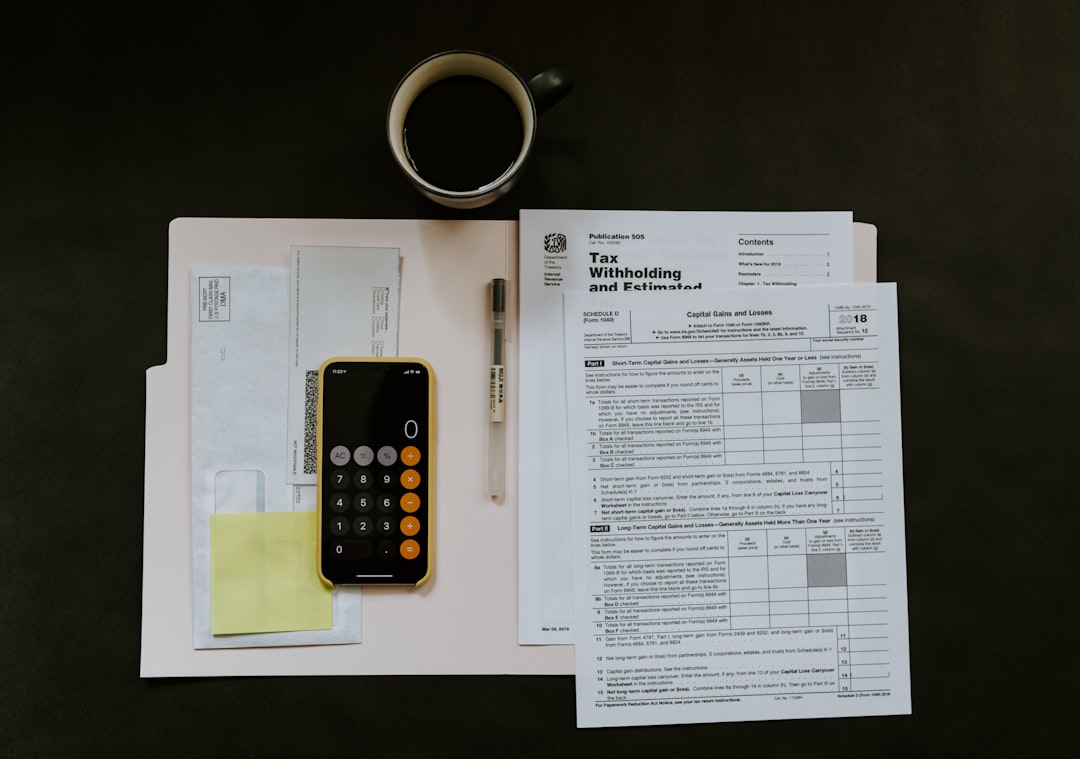As a self-employed professional, success comes from both the work you do and the way you manage your finances. Whether you are an artist, a writer, a consultant, or any other type of freelancer, planning, budgeting, and saving are crucial elements to achieving financial independence.
While being self-employed can offer a great degree of flexibility and work-life balance, it also comes with its own set of challenges, especially when it comes to managing your finances. Unlike those with a traditional job, you are responsible for defining your own income and expenses, which can make it difficult to plan and budget effectively.
In this blog post, we will explore some of the common financial challenges faced by self-employed professionals and provide practical tips, tricks, and resources to help you set yourself up for financial success. From planning for irregular income to staying accountable to your budget, we will cover all the essential elements of managing your finances as a self-employed individual.
So, whether you are just starting your freelance career, or you are a seasoned entrepreneur looking to take your financial management to the next level, this post will provide you with the tools, strategies, and insight you need to thrive in today’s competitive landscape. Let’s dive in!
The Self-Employed Lifestyle: How to Plan for Irregular Income
As a self-employed individual, your income may not be as regular and predictable as someone with a 9 to 5 job. This can make it challenging to manage your finances and plan for the future. However, with some careful planning and consideration, you can set yourself up for financial success.
One of the first steps to planning for irregular income is to create a budget. Determine your monthly expenses and compare them to your average monthly income. Be sure to account for any fluctuations in income that may occur. This will help you to identify areas where you may need to cut back or find ways to increase your income.
Another important aspect of planning for irregular income is to establish an emergency fund. This fund should be large enough to cover your expenses for at least three to six months. This will serve as a safety net should your income suddenly decrease or stop altogether.
It may also be helpful to consider setting up multiple streams of income. This can provide additional financial security and ensure that you have money coming in even if one stream of income is disrupted.
When it comes to managing irregular income, it is important to be disciplined with your spending. Try to avoid the temptation to splurge when you have a particularly good month, as this can lead to financial instability in the long run.
Ultimately, planning for irregular income as a self-employed individual requires patience, discipline, and careful consideration of your current financial situation. By taking a proactive approach and implementing some of the strategies outlined in this post, you can set yourself up for financial success and achieve your goals as a self-employed professional.
This fund should be large enough to cover your expenses for at least three to six months.
Expenses to Consider: What to Budget for as a Self-Employed Individual
As a self-employed individual, it’s essential to have a clear understanding of your expenses. Unlike a traditional employee, you are responsible for managing all of your business expenses. Failure to do so can lead to financial difficulties and, ultimately, a decline in your business.
Here are some essential expenses to consider when budgeting as a self-employed individual:
1. Business Expenses
One of the most critical expenses to consider as a self-employed individual is your business expenses. These can include office rent, equipment purchases, office supplies, software licenses, and more. It is crucial to keep track of these expenses in a separate account to streamline your tax reporting and to stay organized.
2. Taxes
Self-employed individuals are responsible for both their own income tax and employer portion of Social Security and Medicare taxes, which add up to 15.3% of your self-employment income. Additionally, you may owe state and local taxes, depending on your location. It is crucial to budget for these additional taxes to avoid any surprises come tax season.
3. Insurance
As a self-employed individual, you’ll need to consider purchasing your own health insurance, dental insurance, and other insurance policies, such as liability insurance, property insurance, home business insurance, and more. It’s wise to shop around and find the best deals on these insurance policies.
4. Retirement Savings
Another major expense to consider is long-term savings. As a self-employed individual, you are responsible for your retirement savings as there is no employer-sponsored retirement plan. One of the best ways to save for retirement is to open an individual retirement account (IRA) or a solo 401(k) plan.
5. Marketing and Advertising
Unlike traditional employees, self-employed individuals are responsible for sourcing their own clients and generating their own business. Investing in marketing and advertising can be expensive but is crucial for growing your business. Allocate a budget for advertising, networking events, or professional development courses to promote your brand, build relationships and gain credibility in your industry.
It is essential to budget effectively as a self-employed individual to keep your business running smoothly. In today’s economy, the gig economy is gaining more traction and becoming more popular. With these tips in mind, you’ll be better equipped to take control of your finances and create financial stability as a self-employed individual.
Failure to do so can lead to financial difficulties and, ultimately, a decline in your business.
Strategies for Saving: Tips and Tricks to Keep More Money in Your Pocket
Being self-employed can be both rewarding and challenging, especially when it comes to managing your finances. While you have the freedom to set your own schedule and work on projects that interest you, you also need to plan for irregular income and be mindful of your expenses to ensure long-term financial success. In this section, we will explore some effective strategies for saving money and keeping more of your hard-earned cash in your pocket.
1. Prioritize your spending
As a self-employed individual, it’s important to prioritize your spending and focus on the things that truly matter. This means being mindful of your expenses and making a conscious effort to avoid unnecessary purchases. To do this, create a budget and stick to it. Prioritize your essential expenses like rent, utilities, and healthcare, and try to cut back on discretionary spending like dining out and entertainment.
2. Shop around for deals
One of the biggest advantages of being self-employed is that you have flexibility in your schedule, meaning you can take advantage of deals and discounts when they become available. Consider shopping around for cost-effective vendors, avoiding expensive suppliers, and being patient with your purchases. Don’t be afraid to negotiate prices, as vendors often have wiggle room in their rates.
3. Invest in technology
As a self-employed individual, you need to make the most of your time and be as efficient as possible. Investing in technology can help streamline your work processes and save you money in the long run. Consider using online tools for invoicing, expense tracking, payroll and project management to reduce administrative work and help you focus on your core business.
4. Embrace frugality
When it comes to managing your finances as a self-employed individual, frugality is your friend. This means being mindful of your spending habits and finding ways to save money whenever possible. A great way to embrace frugality is to take advantage of free resources, whether it’s free online tools, DIY resources, or marketing outlets like social media.
5. Use credit wisely
Finally, it’s important to use credit wisely when running your own business. This means using credit cards and loans sparingly and only when needed, and paying them off promptly to avoid accruing unnecessary interest rates. Make sure to keep your business and personal finances separate, and consider using credit cards with rewards programs that can save you money on essential business expenses.
In conclusion, saving money and managing finances effectively is crucial for self-employed individuals. Whether it’s through prioritizing spending, shopping around for deals, investing in technology, embracing frugality, or using credit wisely, there are many strategies you can implement to keep more money in your pocket and achieve long-term financial success.
Invest in technology
As a self-employed individual, you need to make the most of your time and be as efficient as possible.
Tools of the Trade: Must-Have Resources for Managing Your Finances
As a self-employed professional, you are responsible for managing your finances on your own. Fortunately, there are many resources and tools available to make this task easier and more efficient. Here are some must-have resources for managing your finances as a self-employed individual:
1. Accounting Software: To keep track of your income and expenses, you will need reliable accounting software. QuickBooks and Xero are two of the most popular options, and they offer features like invoicing, expense tracking, and financial reporting.
2. Online Payment Systems: As a self-employed professional, you will likely need to accept payments from clients. Online payment systems like PayPal, Stripe, and Square are fast, convenient, and secure ways to get paid.
3. Tax Preparation Software: Filing your taxes as a self-employed individual can be complex, so it’s important to have reliable tax preparation software. TurboTax and H&R Block are two popular options, and they offer guidance on deductions and credits that could save you money.
4. Retirement Savings Accounts: As a self-employed professional, you don’t have access to an employer-sponsored retirement plan, but you can still save for retirement by opening an individual retirement account (IRA) or a solo 401(k). These accounts offer tax advantages and can help you build a secure future.
5. Expense Tracking Apps: Keeping track of your expenses is important for managing your finances, and there are several apps that can help you do that. Some popular options include Expensify, Receipt Bank, and Shoeboxed.
6. Business Credit Cards: Using a business credit card can help you separate your personal and business expenses and build your credit history. Look for cards with rewards programs and low interest rates.
By using these tools and resources, you can manage your finances more easily and efficiently. However, it’s important to choose resources that align with your needs and goals. Do your research and consider your options carefully, and you’ll be on your way to financial success as a self-employed professional.
Online payment systems like PayPal, Stripe, and Square are fast, convenient, and secure ways to get paid.
Staying Accountable: How to Hold Yourself Responsible for Sticking to Your Budget
Managing your finances when you’re self-employed can be a challenge. It takes discipline and persistence to avoid overspending and staying within your means to grow your business. Fortunately, there are several strategies that you can implement to hold yourself responsible for sticking to your budget.
Perhaps the most critical step in staying accountable is developing a budget that works for you. A realistic budget should consider your expenses, goals, and income. Be sure to allocate enough money for taxes, savings, and investments, as well as for your business and personal expenses. Keep track of all your expenses, including small purchases like coffee and snacks, to help you stay on track.
Another effective strategy is to set specific financial goals and establish a plan for achieving them. These goals might include paying off debt, expanding your business, or saving for retirement. Whatever your goals may be, make sure they are specific, measurable, and realistic. Break them down into smaller, achievable milestones, and create a timeline to track your progress.
Technology can also play a big role in staying accountable for your finances. Many apps and software programs are available to help you track your expenses, monitor your income, and stick to your budget. Consider using a tool like QuickBooks or Mint, which can help you see your income and expenses in real-time and offer insights into your spending habits.
Finally, it’s essential to find someone to hold you accountable for your financial decisions. This could be a family member, friend, or even a mentor who can provide guidance and support when you need it. Share your financial goals with them, and ask for their input on how you can improve your financial management skills.
In conclusion, being self-employed comes with many benefits, but it also requires a great deal of responsibility. By developing a well-planned budget, setting goals, utilizing technology, and finding someone to hold you accountable, you can successfully manage your finances and achieve your financial objectives. Stay focused, disciplined, and committed, and you’ll be on your way to financial success as a self-employed professional.
Technology can also play a big role in staying accountable for your finances.
Conclusion: Taking Charge of Your Finances as a Self-Employed Professional
Congratulations! You have made it all the way to the end of our blog on financial success for self-employed professionals. In this post, we have covered a range of topics to help you take control of your finances and build a strong foundation for long-term success.
By now, you should have a good understanding of the self-employed lifestyle and how it can impact your finances. You should also have a clear idea of the expenses you need to budget for, as well as some strategies for saving money and managing your finances effectively.
You have also learned about some of the essential tools and resources that can help you stay on top of your finances, and we have discussed the importance of accountability when it comes to sticking to your budget.
Ultimately, the key to financial success as a self-employed professional is taking charge of your finances and making a commitment to managing them effectively. By following the strategies and tips outlined in this blog, you can build a strong foundation for long-term financial stability and success.
So, whether you are just starting out in your self-employed career or are already well-established, we hope that this blog has provided you with the information and inspiration you need to take your financial success to the next level!





